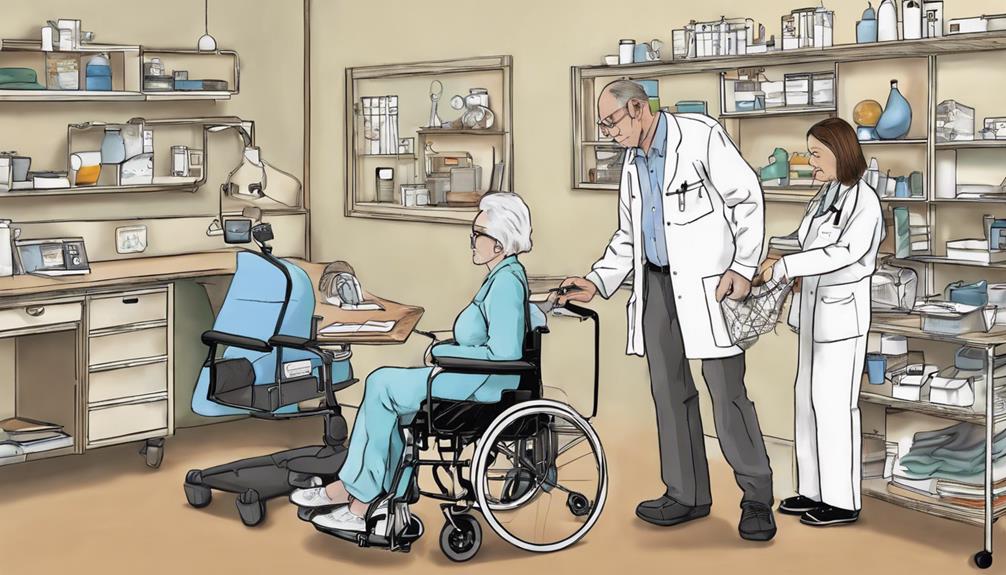Empowering caregivers with innovative lifespan approaches includes a program featuring modules dedicated to critical thinking, problem-solving, and peer support. Caregivers, especially parents of children with cerebral palsy, find the skills taught in this program to be incredibly beneficial. Critical thinking helps to increase confidence by making informed decisions. Problem-solving techniques aid in reducing stress and improving the quality of care provided. Peer support offers emotional validation and guidance. Implementing self-care practices and setting boundaries are essential in preventing burnout. Community screenings and policy advocacy are crucial in addressing important issues. Creating a supportive environment involves providing access to necessary resources and enhancing skills. It is important to explore caregiver empowerment in low-income settings and implement tailored strategies. Understanding power dynamics is key to impactful caregiving. Continuously seeking to improve your caregiving skills through exploration is highly encouraged.
Key Takeaways
- Implementing innovative lifespan approaches for caregiver empowerment.
- Focusing on holistic care strategies for caregivers in diverse settings.
- Incorporating new tools and resources for continuous caregiver support.
- Tailoring programs to address evolving needs across different life stages.
- Promoting long-term well-being through sustainable empowerment initiatives.
Caregiver Training Program Overview
In our caregiver training program overview, we implemented a year-long program comprising 10 participatory modules emphasizing critical thinking, problem-solving, and peer support. The primary goal was to empower caregivers, particularly parents of children with cerebral palsy, by equipping them with essential skills, knowledge, and a strong support network through our training sessions.
Impact evaluation played a pivotal role in evaluating the program's effect on caregiver well-being, with a focus on supporting referrals for assistive devices. Data collection through pre- and post-intervention studies involved in-depth interviews with primary caregivers at three different time points. Thematic analysis and case study analysis were conducted using Rowland's model of power and the socio-ecological model for a thorough assessment.
Critical Thinking Skills Development

Enhancing problem-solving abilities and decision-making processes is pivotal in developing critical thinking skills for caregivers. Training sessions focus on fostering critical thinking skills to empower caregivers in making informed choices for their loved ones. Caregivers learn to analyze situations, consider multiple perspectives, and evaluate options to provide best care.
- Caregivers are encouraged to think critically by examining different aspects of a situation.
- Developing critical thinking skills enables caregivers to make well-thought-out decisions.
- Empowerment through critical thinking allows caregivers to feel more confident in their caregiving roles.
Problem-Solving Techniques
As caregivers, we must be ready to tackle challenges head-on by using innovative problem-solving strategies.
By applying practical solutions and effective troubleshooting methods, we can navigate complex care needs with confidence.
These skills not only reduce stress but also enhance the quality of care we provide to our loved ones.
Innovative Problem-Solving Strategies
Utilizing cutting-edge problem-solving techniques equips caregivers with the tools needed to effectively address challenges and enhance caregiving experiences. By adopting innovative strategies, caregivers can approach problems with confidence and creativity. These approaches involve:
- Collaborative Problem-Solving: Working together with family members and care recipients to find solutions that benefit everyone involved.
- Creative Brainstorming: Encouraging out-of-the-box thinking to generate new ideas and approaches to caregiving challenges.
- Action-Oriented Planning: Developing practical plans with specific steps and timelines to implement solutions efficiently.
These strategies not only improve problem-solving skills but also foster a supportive and proactive caregiving environment, leading to better outcomes for both caregivers and those under their care.
Practical Caregiver Solutions
Caregivers improve their problem-solving skills by identifying challenges, brainstorming solutions, and implementing efficient strategies. When faced with complex issues in health care, caregivers need practical problem-solving techniques to navigate daily tasks and provide top-notch care.
Seeking support from resources like support groups, online forums, and educational materials can further strengthen their abilities. Effective problem-solving not only helps in managing healthcare systems but also in addressing emotional needs of both the caregiver and the recipient.
It's essential for caregivers to collaborate with healthcare professionals, social workers, and counselors to tailor personalized problem-solving approaches. By encouraging proactive problem-solving, seeking assistance when needed, and adapting to changing situations, caregivers can guarantee effective caregiving and comprehensive support.
Effective Troubleshooting Methods
Handling the intricacies of caregiving often requires utilizing efficient problem-solving methods to tackle challenges and guarantee best care provision. When caregivers encounter obstacles, the following problem-solving techniques can be beneficial:
- Identifying Issues: Recognizing the key cause of a problem is essential for effective resolution.
- Generating Solutions: Brainstorming potential answers and evaluating their feasibility aids in finding the best course of action.
- Seeking Support Groups: Connecting with other caregivers facing similar challenges can provide valuable insights and emotional reinforcement.
Peer Support Benefits

Peer support benefits caregivers by creating a supportive community network where they can connect with others facing similar challenges. This network offers emotional validation and guidance, providing caregivers with a sense of belonging and understanding.
Engaging in peer support groups can enhance caregivers' well-being, resilience, and overall quality of life.
Supportive Community Network
In the midst of the challenges of beginning a new chapter, former caregivers find solace and empowerment through supportive community networks, where shared experiences and guidance foster resilience and well-being. Peer support networks play an essential role in helping individuals move to life after caregiving.
Here's how these networks benefit former caregivers:
- Emotional Understanding: Peer interactions provide a safe space to discuss caregiver experiences and challenges.
- Practical Advice: Community networks offer guidance on coping strategies and maneuvering the post-caring phase.
- Sense of Belonging: Being part of a supportive community helps combat feelings of loneliness and isolation, fostering a sense of connection and belonging during this change period.
Emotional Validation and Guidance
Managing life after caregiving becomes more manageable as former caregivers find emotional validation and guidance through peer support networks.
Caregivers benefit greatly from peer support, which offers a crucial space to share experiences, receive empathy, and gain coping strategies. Studies demonstrate that engaging in peer support reduces feelings of isolation and enhances mental well-being for caregivers. By participating in peer support groups, caregivers report increased confidence, reduced stress levels, and improved coping skills.
These programs play an essential role in empowering caregivers to navigate their caregiving journey with resilience and support. Through emotional validation and guidance from peers, caregivers can strengthen their ability to overcome challenges and maintain their well-being post-caregiving responsibilities.
Enhancing Caregiver Well-Being

Improving caregivers' well-being is vital for their successful shift from the caregiving role to a new phase in life. Caregivers must understand that maintaining good mental health is essential during this change. To enhance well-being, consider the following: seeking support from friends, family, or professional counselors who can provide guidance and encouragement during this transition. Additionally, practicing mindfulness techniques for caregivers can help reduce stress, improve emotional regulation, and foster a sense of balance. Engaging in self-care activities, such as regular exercise, healthy eating, and hobbies, can further support their mental and emotional health.
- Self-care Practices: Encourage caregivers to prioritize their own needs by engaging in activities that promote relaxation and self-compassion. This could include meditation, hobbies, or simply taking a short walk to clear the mind.
- Establishing Boundaries: Help caregivers set boundaries with others to prevent burnout and maintain a healthy balance between caregiving responsibilities and personal life. Learning to say no when needed is an important aspect of self-care.
- Utilizing Support Systems: Emphasize the importance of seeking help from support systems such as family, friends, or community resources. Having a strong support network can provide emotional assistance and practical help during challenging times.
Referrals for Assistive Devices

Encouraging caregivers to explore referrals for assistive devices enhances their ability to support individuals with cerebral palsy effectively. As part of the caregiver training program, these referrals play a crucial role in improving the quality of care provided. The program, spanning over a year, consists of 10 modules focusing on critical thinking, problem-solving, and peer support. Through pre- and post-intervention studies, the impact on caregiver well-being and the effectiveness of assistive device referrals are evaluated.
Empowerment themes within the program emphasize the importance of identifying individuals in need through community-based screenings and hospital records. In-depth interviews conducted at various time points provide valuable insights. Referrals for assistive devices aren't just about access to equipment; they also touch on complex issues like power dynamics related to gender, poverty, and stigma. By understanding these intricacies, caregivers can harness collective agency, knowledge, and action to empower both themselves and those they care for.
Addressing Structural Issues

When we talk about addressing structural issues in caregiver empowerment, we're referring to the barriers that caregivers face due to factors like gender, poverty, and stigma.
These challenges can have a major impact on caregivers' ability to advocate for themselves and those they care for, especially in low-income settings.
Structural Barriers in Caregiving
Structural barriers in caregiving, such as limited access to affordable healthcare services and support systems, present significant challenges for caregivers in fulfilling their roles effectively. These obstacles can hinder caregivers' ability to provide excellent care for their loved ones, impacting their overall well-being.
To address these structural issues effectively, we must:
- Advocate for policy changes to improve caregiver resources and assistance programs.
- Push for increased financial assistance to alleviate the burden on caregivers.
- Work towards enhancing respite care options and building stronger community support networks.
Empowering caregivers involves recognizing and overcoming these systemic barriers, enabling them to fulfill their caregiving roles with greater ease and effectiveness. By addressing these structural challenges, we can create a more supportive environment for caregivers and those they care for. This can be achieved through the development of specific caregiver role strain solutions, such as providing access to mental health support, respite care, and financial assistance. These resources will help alleviate the emotional and physical burdens often experienced by caregivers, ensuring they are better equipped to sustain their caregiving responsibilities. Ultimately, fostering a system that prioritizes caregiver well-being benefits both caregivers and care recipients alike.
Overcoming Systemic Challenges
In addressing the systemic challenges of caregiver support, our focus is on creating an enabling environment that promotes empowerment and well-being. Structural issues often act as barriers to caregivers' empowerment, affecting their overall well-being. These challenges can stem from factors such as gender disparities, poverty, and societal stigma. By recognizing and addressing these structural issues, we can work towards empowering caregivers to provide better care and support.
Vital approaches play an important role in reshaping global caregiver support systems. Following WHO CBR guidelines, which highlight the significance of empowering caregivers, is essential in overcoming these systemic challenges. By tackling these structural issues head-on, we can create a more supportive and empowering environment for caregivers worldwide.
Creating an Enabling Environment

Addressing the structural issues that impact caregivers' ability to provide effective care is key to creating an enabling environment for them. When caregivers are empowered, they can better support children with disabilities.
To foster this enabling environment, consider the following:
- Access to Resources: Guarantee caregivers have easy access to necessary resources such as medical supplies, educational materials, and support networks.
- Training and Education: Provide caregivers with training programs and educational workshops to enhance their skills in caring for children with disabilities.
- Community Support: Create a supportive community network where caregivers can share experiences, seek advice, and find emotional support during challenging times.
Significance of Further Research

Exploring the impact of caregiver empowerment on children's well-being in low-income settings is an essential avenue for further research. In these contexts, understanding power dynamics is vital to effectively empower caregivers.
By delving into the intersectionality of power dynamics with gender, poverty, and stigma, researchers can develop more tailored empowerment strategies. Caregiver training programs often emphasize themes like knowledge acquisition, collective agency, and action-oriented strategies. However, further research is needed to refine these approaches specifically for low-income settings.
Structural issues must also be addressed to create an enabling environment that supports caregivers and individuals with disabilities in resource-constrained areas. Additionally, the role of group facilitators in negotiating power structures within poverty-affected families is crucial for successful empowerment outcomes.
Implications for Low-Resource Settings

Considering the scarcity of caregiver empowerment programs in low-income settings, it becomes imperative to innovate sustainable support mechanisms for caregivers facing unique challenges. In low-resource settings, transformative approaches are essential to uplift caregivers and enhance their well-being. Here are some implications for such environments:
- Community-Based Support: Establishing community networks where caregivers can share experiences, knowledge, and resources can provide a valuable support system.
- Accessible Training Programs: Developing easily accessible caregiver training programs that focus on practical skills like critical thinking and problem-solving can empower caregivers to better care for their loved ones.
- Advocacy for Resources: Advocating for increased resources and funding directed towards caregiver support in low-income settings can help address the structural limitations that hinder their empowerment.
Frequently Asked Questions
How Do You Empower a Caregiver?
We empower caregivers by providing support, resources, and education to enhance their well-being. Addressing disparities, offering practical tips, and creating personalized care plans are essential. Supporting mental health and self-care activities, effective communication, and building a network of support contribute to caregiver empowerment.
What Skill Can Often Help a Caregiver Make the Best Out of a Tough Situation?
In tough situations, caregivers shine when applying problem-solving skills. By enhancing critical thinking, improving communication, and building resilience, we can navigate challenges effectively. Seeking support and learning from others empowers us to excel.
What Kind of Support Is Most Necessary for the Caregiver?
To support caregivers effectively, emotional and practical assistance is essential. Counseling, training, and help with daily tasks can make a significant difference. Empowering caregivers through various forms of support enhances their ability to provide quality care.
What Are the Coping Strategies Used by Caregivers?
We rely on seeking emotional support, engaging in self-care activities, connecting with support groups, honing problem-solving skills, and seeking professional counseling. These coping strategies help us navigate challenges, manage stress, feel understood, address daily issues, and build resilience.
Conclusion
To sum up, empowering caregivers with new lifespan approaches is like giving them a key to access their full potential. By providing training programs that focus on critical thinking, problem-solving, peer support, and well-being, caregivers are better equipped to navigate the challenges they face. Addressing structural issues and creating an enabling environment are essential steps towards ensuring caregivers can thrive in their roles.
Further research and implementation of these approaches will have a lasting impact on caregiver support, especially in low-resource settings.









